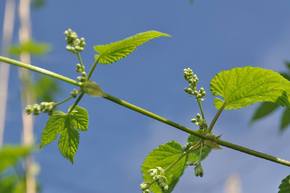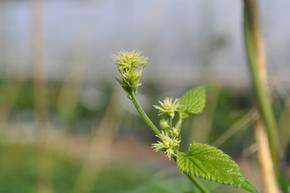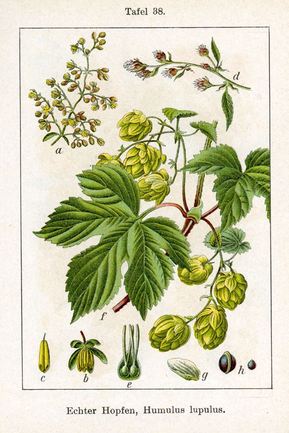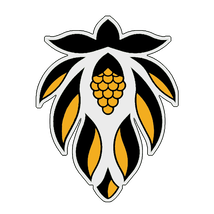 © Dutch Touch Growers, Inc. © Dutch Touch Growers, Inc. A male hop plant. Very rare in the wild. Stressed females can show signs of male anatomy but will be sterile and will not self pollinate. If you locate a male plant that shows no signs of female anatomy, you should eliminate it immediately as it will pollinate all the female plants in the area. Most feral male plants are unknown type because they do not produce cones that can be tested. Hop breeders will use USDA registered males with a known pedigree (like increased resistance to mildews) to breed new varieties. Some triploid hops like Zeus and Columbus have an odd 3 sets of chromosomes (usually 2 male/1 female) which can revert temporarily to male flower production if severely stressed. The male pictured here is USDA19058M (boys are assigned numbers, while the girls get names). It is a registered high-alpha type male.  © Dutch Touch Growers, Inc. © Dutch Touch Growers, Inc. A female hop plant. These burs eventually turn into the cones on the plant. If a male plant is located nearby (rarely) it could pollinate the plant causing your hop cones to have seeds. If you discover seeds in your cones, try to locate the male plant in the area and eliminate it.  A very old image of the hop plant. Shown are both male and female hops. This image is in the public domain and can be copied and used without permission. |
Details
Blog AuthorLynn, the head hop grower at Great Lakes Hops has over 30 years of experience in the horticultural field. Browse the blog articles here to find useful growing information for humulus lupulus, based on personal experience and observations at Great Lakes Hops. Archives
January 2020
Categories
All
|


 RSS Feed
RSS Feed